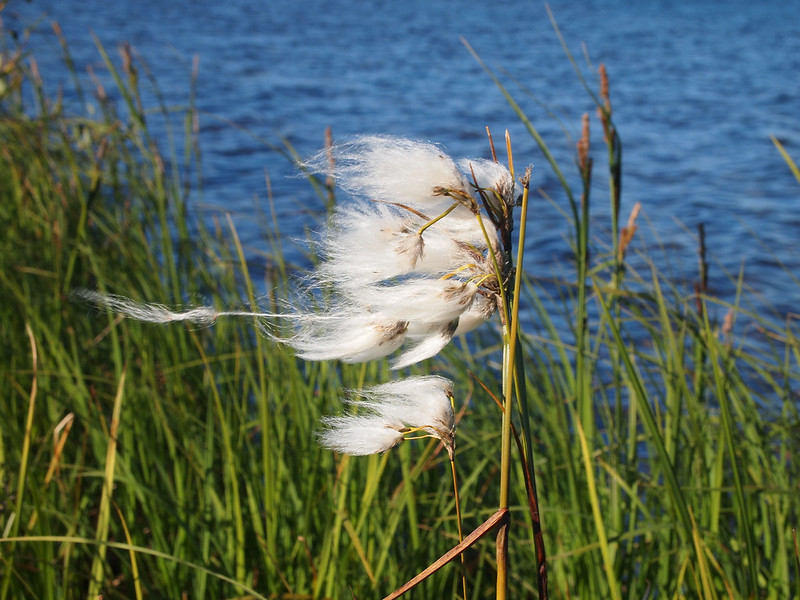How Are Animals Being Affected By Climate Change
Warming temperatures, stronger storms and ascent seas present a cascade of challenges that researchers are racing to understand.
Scientists have provided another reminder that, when it comes to climatic change, we're all in this together. A study published last month in Nature Climate change concluded that at least 85% of the globe's population has already been affected past climatic change.
"It is probable that nearly everyone in the world now experiences changes in farthermost weather every bit a result of human greenhouse gas emissions," Friederike Otto, a senior lecturer at the Grantham Institute for Climate Modify and the Environment at Imperial College, told the Washington Mail service.
While we're all in information technology together, not everything is equal. Wealthier countries like the U.s. play an outsized part in pumping fossil fuels into the temper, merely less wealthy nations face the gravest risks. We too know far less about how climate change will affect poorer countries — much more than research and resources take been dedicated to studying Due north America compared to Africa or South America, the study constitute.
These knowledge gaps don't just affect people, either. Endless species of plants and animals confront a warming earth. Researchers have found that rise temperatures and related impacts can forcefulness changes in behavior, reproduction, migration and foraging. Biologist Thor Hanson wrote in a recent book that 25% to 85% of species on the planet are already on the move because of climate change. What happens when new neighbors interact in these novel ecosystems is something we know trivial about and so far because the ripple furnishings are far-reaching and numerous.
Only the more than scientists uncover well-nigh how plants and animals — and their habitats — may change, the more effective conservation measures will be.
The Revelator has been keeping tabs on the growing field of climatic change biological science. Here are five new findings that scientists have made recently almost wild animals and climate modify.

1. Pack your bags. Numerous bat species will need to motility to find suitable habitat as their current homes are predicted to get hotter and drier. Some, like the Isabelline Serotine bat (Eptesicus isabellinus), could exist forced to relocate 1,000 miles. The largest exodus will likely come from Coastal Europe and Northward Africa, which already support the greatest amount of species richness.
ii. Not a breeze. While fish can swim to colder waters as the ocean heats upward, plants may have a harder time finding suitable habitat in a changing climate. A 2020 report found that wind-dispersed or current of air-pollinated trees in the tropics or on the windward sides of mountain ranges could face up the biggest problems because the wind isn't likely to motility them in a climate-friendly direction.
3. Forest for the trees. Mangrove forests can help mitigate climate change and take been shown to store up to four times equally much carbon equally other tropical forests. They also aid protect coastlines from hurricane damage. Nature-based solutions to help lessen the blows from climate modify are expert news, but researchers have too learned that mangroves themselves are threatened by rising seas. If we desire help from mangroves, nosotros're going to need to cut our greenhouse emissions to aid them, as well.
iv. Disasters abound. So far this year the United States has been walloped by 18 weather and climate disasters costing $i billion each. An increase in the severity of extreme weather isn't but an economical concern, though. Researchers say that such events can besides take a toll on wild animals by killing animals or indirectly destroying food and habitat, contaminating h2o, or forcing wildlife to motility to areas with greater contest or predation.
5. Taking the slow lane. Sometimes yous just need a good place to hide. Last year the journal Frontiers in Ecology and the Environment defended an entire issue to new research about how to identify and manage climate-change refugia — areas where the effects of rising temperatures are largely buffered considering of unique local conditions. Equally one of the studies explained, "Equally the effects of climate change accelerate, climate‐modify refugia provide a slow lane to enable persistence of focal resources in the short term, and transitional havens in the long term."
The hunt for climate refugia is some other reminder of the benefits research tin can have on conservation, and why such scientific efforts need geographic parity and so that some regions — and their biodiversity — aren't overlooked.
Want to know more than? Hither'southward boosted coverage from The Revelator's archives:
Move or Change: How Plants and Animals Are Trying to Survive a Warming World
Will Climate Change Push These Amphibians to the Brink?
Want to Fight Climate Change? Start by Protecting These Endangered Species
A Rare 'Bird of Two Worlds' Faces an Uncertain Futurity
Coral in Crisis: Can Replanting Efforts Halt Reefs' Expiry Spiral?
Climate Alter Really Gets This Researcher's Goat
x Species Climate Modify Could Push to Extinction
Forests vs. Climatic change: Researchers Race to Understand What Drought Means for the World's Copse
Climatic change Is Causing a 'Catastrophic' Shortage of Food for Birds in the Galápagos
Offshore Current of air Power Is Ready to Boom. Here's What That Ways for Wild fauna
The Race to Build Solar Power in the Desert — and Protect Rare Plants and Animals
Source: https://therevelator.org/climate-change-wildlife-coverage/
Posted by: cassellfeld2002.blogspot.com


0 Response to "How Are Animals Being Affected By Climate Change"
Post a Comment